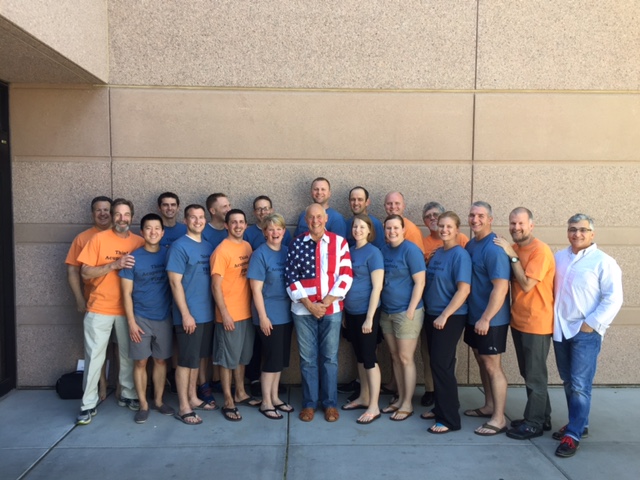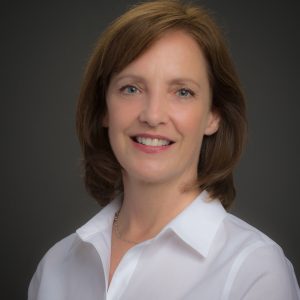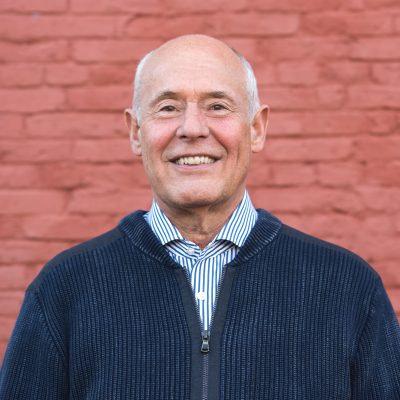Much of the public attention on acupuncture in the military has focused on the benefits for active duty soldiers and recent veterans of Iraq and Afghanistan. Yet medical clinics at military bases serve a large population of retired military personnel and their families. As medical providers at these facilities incorporate acupuncture into their practice, the benefits for senior health show signs of being even more dramatic than those for younger patients. In this interview with pioneering military physician-acupuncturist, retired Colonel Heather Pickett, Brad Erickson asks how acupuncture is helping military seniors in Las Vegas to achieve better health outcomes and improved quality of life.
Brad Erickson interviews Dr. Heather Pickett
BE: I understand that many retired military personnel live in the Las Vegas area. How many seniors are served by the hospital and clinics at Nellis Air Force Base?
HP: There are now as many as 30,000 retired military personnel and their dependents in Las Vegas. The majority of them receive medical treatment at Nellis while the rest make use of the Las Vegas VA Medical Center. New retired vets continue to move to Vegas in large numbers as well.
BE: As practitioners at The Mike O’Callaghan Federal Medical Center at Nellis increasingly integrate acupuncture into their practice, have senior patients gained access to acupuncture?
HP: Yes. I started the acupuncture referral clinic as part of the newest Air Force Family Medicine residency in 2008. It was our goal from the beginning to use acupuncture in our traditional outpatient family medicine residency clinic for all patients as part of the full-spectrum of integrative family medicine. I have found over the years that aging people respond very well to even a little acupuncture that I can quickly incorporate during a clinic visit and the effects can be long lasting.
Each family medicine resident needs to have a diverse panel of patients including all age groups and must include at least 10% of patients that are 65 and older.
They must also have literally hundreds of hours of care of the adult patient in numerous settings such as the emergency room, inpatient units, specialty care clinics, nursing homes, hospice and intensive care units. This means if all residents are trained in some acupuncture, many of the seniors served by Nellis will have access to acupuncture treatment.
BE: What are the particular medical needs of the senior population served by Nellis? Does acupuncture offer any special benefits that improve senior health outcomes and quality of life?
HP: I would say that the biggest problem is pain management and psycho-emotional problems associated with chronic disease. There is always a risk factor in prescribing medications for pain, anxiety and or depression and the risks increase for older patients. Medications for chronic disease also lead to unwanted side-effects. Cognitive problems are one side effect in older people that can lead to accidents and injury. Apart from prescription drugs, over-the-counter anti-inflammatory analgesics can damage kidney and liver function. Kidney function already declines with age while the risk of diabetes and high blood pressure increase that even more; you don’t want to exacerbate that with Tylenol or anti-inflammatories. I have also seen acupuncture reduce opiate use among the elderly with much success. Using acupuncture can reduce these medications to very low doses and may reduce these risks improving their mental state and overall quality of life.
BE: How willing are your senior patients to try therapeutic acupuncture? Could you tell me about a particular patient who was helped?
HP: Very willing! They seem to be much more open than the general population. They’ve been through it all and are willing to try anything. In my practice I would say I see a 90% response rate and the benefits may last longer than with younger patients. I have a post-stroke patient with post-traumatic stress who comes in once a month with his wife for auricular trauma protocol (ATP). He (and his wife!) is beside himself because his mood and mobility is so much better. I also add a few scalp needles and this quick treatment provides 90% improvement in his symptoms.
BE: What would it take to provide the option of acupuncture to more of the seniors served by Nellis?
HP: Using it daily for all health services, which is what we’re starting to do. It began with the family medicine residency clinic then expanded to the ER, in-patient and then to out-patient specialty services as the residents would see their patients in all settings of a community hospital. Our goal is to get every resident trained in acupuncture and encourage them to use it every day. The next stage is to train our specialists in rheumatology, neurology, orthopedics, and internal medicine. They see a majority of patients who are over 55.
Early on, I trained a rheumatologist in battlefield auricular acupuncture, the only kind I had taught others in before Dr. Helms provided the comprehensive training now used at Nellis. The rheumatologist was very skeptical but everyone he treated responded well to acupuncture and the patients started asking for it. One of our neurologists used it extensively as an adjunct in his clinic as well.
BE: Is there anything you’d like to add to what you’ve said?
HP: Seniors have multiple medical problems in the majority of cases. Some practitioners don’t want to try acupuncture because these cases seem so complicated, yet more doctors need to put it at the top of their list because even a little acupuncture can help. If seniors can reduce their meds, or sleep better, that can lead to better health and quality of life overall. Doctors don’t need to be intimidated by the complexity of senior health challenges. After all, acupuncture is a relatively low-risk therapy. The 2015 American Geriatrics Society 2015 Updated Beers Criteria for Potentially Inappropriate Medication Use in Older Adults (http://onlinelibrary.wiley.com/doi/10.1111/jgs.13702/full) is an evidence-based list of select drugs that should be avoided or have their dose adjusted based on the individual’s kidney function and select drug–drug interactions documented to be associated with harms in older adults. When I look at that list, I see many of those medications and the problems they are supposed to treat can possibly be addressed by acupuncture. I really want to add that as we continue to see these successes in our senior veteran population, I hope we can transfer this knowledge to Medicare recipients as there is such a huge need in the civilian senior population for medical acupuncture to be reimbursed and current guidelines do not provide for acupuncture reimbursement.
Heather Pickett Biography
Heather Pickett is a recently retired Air Force Family Physician/Flight surgeon who served for 22 years stationed throughout the world. She graduated from the United States Air Force Academy in 1988 and the Chicago College of Osteopathic Medicine in 1992. She completed a General Surgery internship at Wright State University in 1993 and then a Family Medicine residency at the University of Nebraska Medical Center in 2001. Dr. Pickett started out in rural medicine for a year, as the lone doctor on a 2X4 mile island in the middle of the Aleutian Islands in Alaska! She was then sent to Edwards Air Force Base in California as a flight surgeon where not only did she work with the US Air Force Test Pilot School and flew in numerous aircraft, but she also was the Commander of the Space Shuttle Medical Recovery Team. Her progressive program in occupational medicine at Edwards AFB, won her the prestigious “Air Force Flight Surgeon of the Year” award in 1998. After her family medicine residency, she moved to Germany where she practiced full scope family medicine and aviation medicine. The last 10 years of her career were spent teaching as full time faculty for the St. Louis University/Scott AFB Family Medicine Residency and the Nellis Air Force Base Family Medicine Residency in Las Vegas. She has been an Assistant Professor with the Uniformed Services University of Health Sciences in Bethesda, Maryland, St. Louis University School of Medicine and Touro University College of Osteopathic Medicine in Las Vegas. She also completed a Primary Care Faculty Development Fellowship at the University of North Carolina, Chapel Hill in 2008. As an osteopathic physician who has been using her manual medicine skills throughout her career, she was chosen in 2005 as one of the first Air Force Physicians to be trained in Medical Acupuncture through the renowned Helms Medical Institute Physician Acupuncture Program. Since then, as a full-time Family Medicine professor, she launched acupuncture teaching clinics at the Scott Air Force Base/St. Louis University School of Medicine Family Medicine residency and the Nellis Air Force Base Family Medicine residency in Las Vegas, NV exposing hundreds of medical students and residents to the art of medical acupuncture in all aspects of patient care. She was the first military family physician to teach auricular acupuncture at the Uniformed Services Academy of Family Physicians national conference in 2007 and has taught auricular acupuncture techniques across the country and in the UK to both military and civilian practitioners. While in the Air Force she received the ‘Academic Grand Master’ special experience identifier for her years of acupuncture experience and teaching. With numerous publications, presentations and research related to family and integrative medicine, she currently works in the Pain Management clinic through the Department of Physical Medicine and Rehabilitation at the Veterans Affairs Southern Nevada Medical Center. There she performs medical acupuncture and osteopathic manipulative medicine to a wide range of patients with pain and mental health issues.
Like this post? Share it, comment, and subscribe to get more.
Consider making a contribution to Acus so that more military medical providers can receive training in medical acupuncture.




